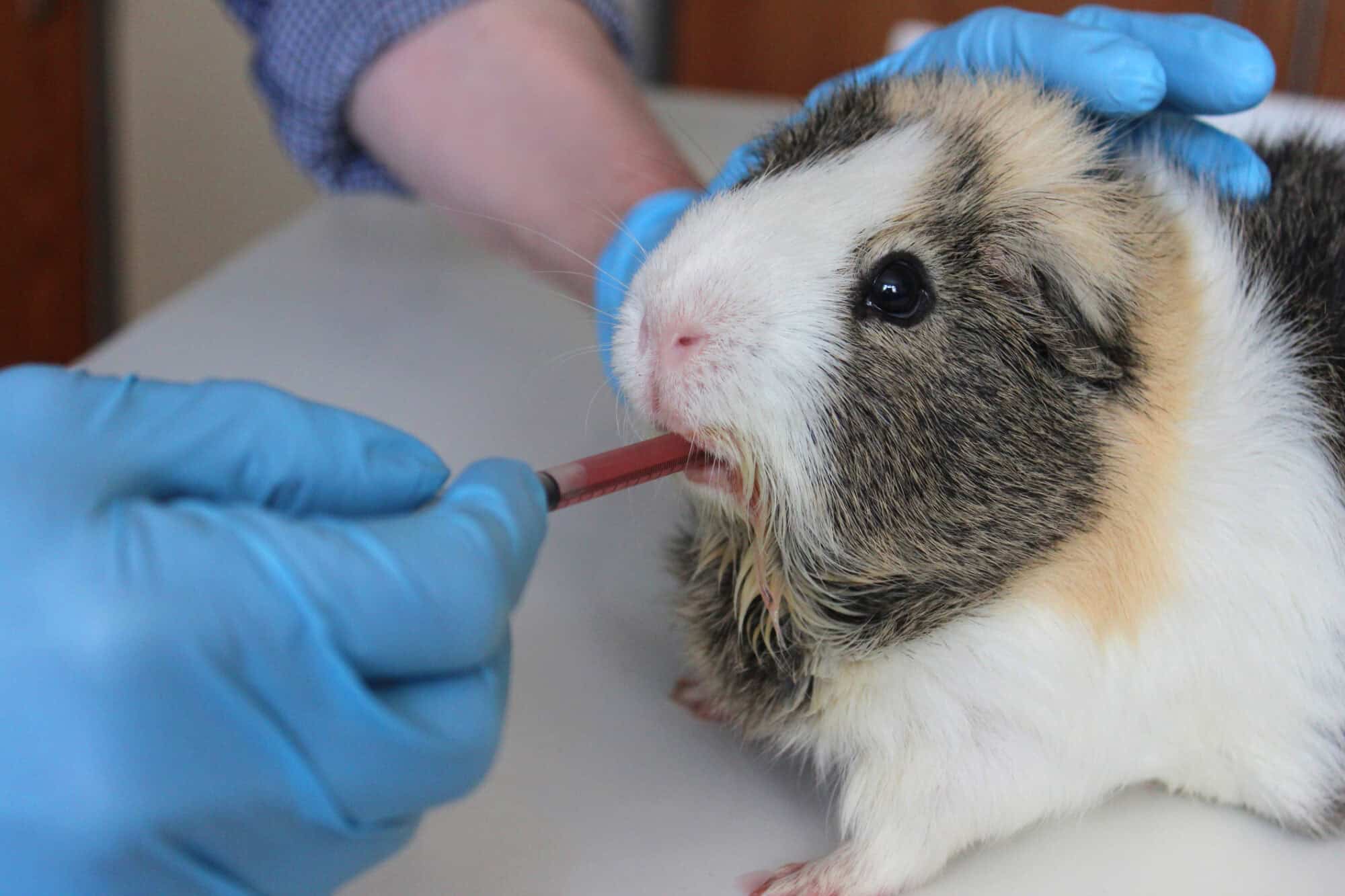Three Signs of Sickness in Pocket Pets

Dr. Burris and the rest of the team at Amberglen Pet Care know a thing or two about pocket pets. Whether your heart is held by a rabbit, mouse, chinchilla, guinea pig, or other small mammal, you know that caring for these tiny creatures can be a bit of a challenge. Pocket pet care is notoriously tricky, as it is quite difficult to know when something is amiss. Sharing our top three signs of sickness in small pets is the least that we can do when it comes to helping you care for your pocket sized pal.
Beware of Behavior
Pocket pets don’t advertise when they are not feeling well (as this can make them prime targets for predators). Instead, they tend to conceal signs of illness until things are pretty serious.
An astute pet owner can pick up on subtle clues, however, that might tip them off to common pocket pet ailments.
The key to pocket pet care lies in paying attention. If you are familiar with your pet’s normal day-to-day habits, it is much more likely that you will pick up on a problem in time to intervene.
Common behavioral changes that might be noted in a sick pocket pet include:
- Increased hiding behavior
- Decreased social interaction with you or other animals
- Changes in grooming habits
- Increased aggressive behavior
- Personality changes including lethargy or disorientation
If you are noticing your pet acting differently than normal, especially if it appears to be a persistent change, please schedule an appointment so we can investigate what is going on.
Take Note of Appetite
Most small mammals spend a significant portion of their day munching away. When that changes, it can be a good indicator that your pocket pet may need attention.
Be aware of how much your pet is eating and drinking on a daily basis and what their favorite foods are. Sudden changes in how much and what your pet is eating can be cause for concern, as can changes in your pet’s chewing habits. If your pet is a species that stockpiles, careful attention and strategic rotation of food can help you know what they are actually consuming.
On the other end of the digestive tract, changes in frequency or texture of stools can also raise the alarm.
Rely on Your Veterinary Team to Aid in Pocket Pet Care
It is really important to remember that signs of sickness in small pets are few and far between. Sometimes the best clue that something is wrong is one you don’t notice at all. Preventive measures for pocket pets lie in good wellness care.
Pocket pet care at Amberglen Pet Care includes regular check ups where we may note things that you didn’t or couldn’t at home such as:
- Changes in body weight
- Overgrown or abnormal teeth
- Intestinal parasites
- Changes on screening lab work
- Changes in movement and mobility
When we work together as a team to identify these more subtle indications of trouble, it increases the odds of us helping.
Your pocket pet relies on you to keep them happy and healthy, and recognizing signs that they may be sick can help you to fulfill that duty. If you ever have questions about how your pet is doing, don’t hesitate to ask us. Good pet care is important to us!
